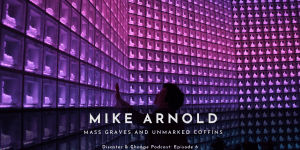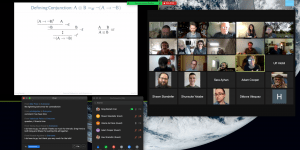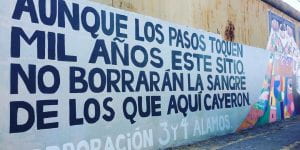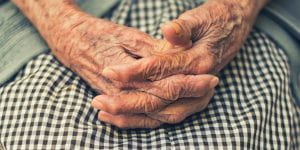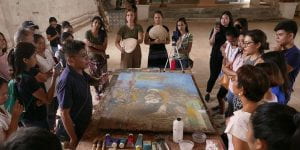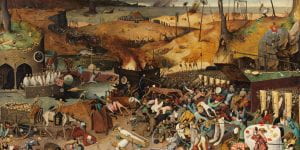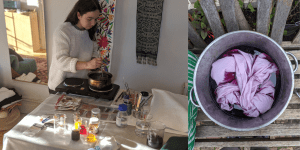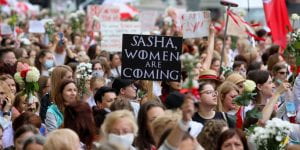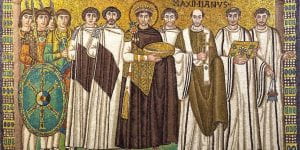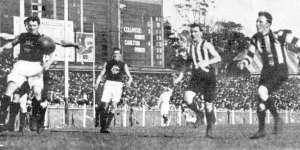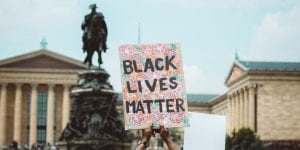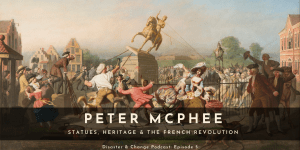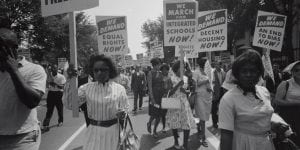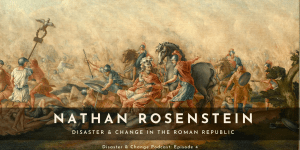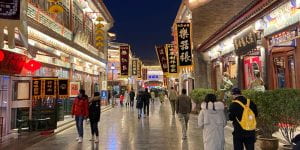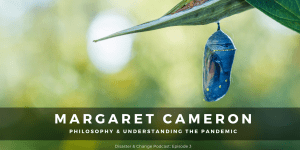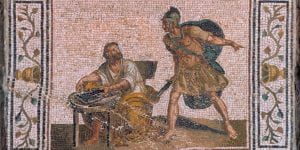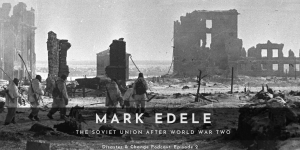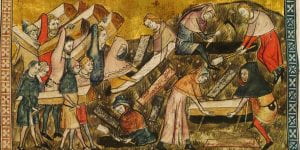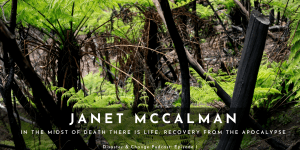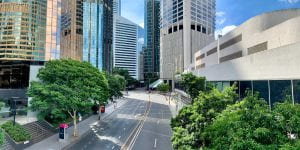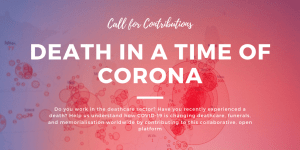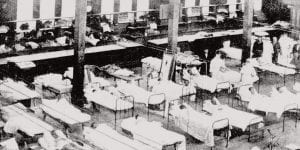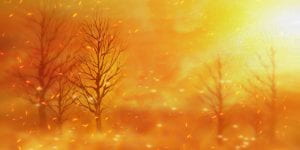Category: Disaster & Change
-
Episode 6 in the SHAPS Podcast Series: Professor Mike Arnold
Professor Mike Arnold discusses his research on the intersections between death, technology and society, in this final episode of the SHAPS 2020 'Disaster and Change' podcast series, hosted by Dr Henry Reese. -
Applied Proof Theory: Holding an International Workshop during the Pandemic
How do you hold an international workshop at a time when travel between continents is at a standstill and countries all over the world are in lockdown? Greg Restall, Professor in Philosophy, explains how this worked at the recent international workshop on Applied Proof Theory. -
Rebuilding Life after Mass Violence: Lessons from the Chilean Truth Commission
History PhD candidate Amy Hodgson was recently awarded a prestigious Yale Fox International Fellowship. This graduate exchange scheme supports students who are committed to harnessing scholarly knowledge to respond to urgent global challenges. The Fellowship will support Amy’s research into the history of Chile’s post-dictatorship truth commissions. For her project, Amy has carried out a […] -
The Uncounted Death Toll of Coronavirus in Aged Care
Associate in History Marama Whyte reflects on the acute crisis in the aged care sector that has been revealed so tragically by the pandemic.blogs.unimelb.edu.au/shaps-research/2020/11/04/the-uncounted-death-toll-of-coronavirus-in-aged-care
-
Restoring and Conserving the Parish Church at Guiuan, Eastern Samar
In the wake of Super Typhoon Yolanda in the Philippines, National Museum of the Philippines conservators, heritage professionals, architects and anthropologists, have been working with parishioners and local craftspeople and artists to restore and conserve the historic church of La Inmaculada Concepción at Guiuan, in the province of Eastern Samar. The Grimwade Centre for Cultural […]blogs.unimelb.edu.au/shaps-research/2020/09/30/restoring-and-conserving-the-parish-church-at-guiuan
-
Other Awful Years in History
Around the world, people can’t wait for 2020 to end. COVID-19 has killed close to a million people globally over the course of the pandemic. On top of the coronavirus, there’s been significant floods in Uganda, Kenya, Pakistan and the UK, Australia has experienced devastating bush fires, storms have battered the Americas, and locusts have […]blogs.unimelb.edu.au/shaps-research/2020/09/21/other-awful-years-in-history
-
WFH as a Textile Conservator
Victoria Thomas is a textile conservator at Grimwade Conservation Services, the commercial arm of the Grimwade Centre. In this recent article, republished here from Gabberish, she explores what it’s like to be a conservator working from home during Melbourne’s COVID-19 lockdown. She looks at how one can still carry out some of the complexities of […]blogs.unimelb.edu.au/shaps-research/2020/09/15/wfh-as-a-textile-conservator
-
SHAPS Digest (August 2020)
A monthly roundup of media commentary, publications and projects, and other news from across the School community.blogs.unimelb.edu.au/shaps-research/2020/09/11/shaps-digest-august-2020
-
Volcanic Winter and Pandemic Pandemonium
A terrible onslaught of bubonic plague in the sixth century abruptly ended Emperor Justinian’s dream of reunifying the Roman empire and caused massive geopolitical upheaval. Associate Professor Frederik Vervaet from Classics & Archaeology tells us more about this ancient pandemic and its consequences in this article republished from Pursuit. In 527 CE, when Emperor Justinian […]blogs.unimelb.edu.au/shaps-research/2020/08/16/volcanic-winter-and-pandemic-pandemonium
-
Sport, Community and Everyday Life: World War One and COVID-19 Compared
For many Australians, the economic pain brought by the COVID-19 crisis has been compounded by the disruption caused to sporting activities. For football-loving Melburnians, the very rhythm of the week was rendered unrecognisable after the temporary suspension of the 2020 AFL season in March. The closing down of sports at the local community level has […]blogs.unimelb.edu.au/shaps-research/2020/07/31/sport-community-everyday-life
-
SHAPS Digest (June 2020)
A monthly round-up of media commentary, publications and projects, and other news from across the School community.blogs.unimelb.edu.au/shaps-research/2020/07/09/shaps-digest-june-2020
-
Episode 5 in the SHAPS Podcast Series: Professor Peter McPhee
Societies have always used statues and other monuments as ways of recognising power and eminence. In Australia, as in many other places, there is currently public debate over whether some statues should be removed, who should make the decision, and what should be the fate of the statues themselves. Should they be displayed with explanatory plaques, taken away to be preserved in museums or simply removed? Such debates are common in history. In this episode, Professor Peter McPhee surveys the wide range of objects destroyed during the French Revolution – from buildings and statues to books and paintings – but also the remarkable responses of revolutionary governments. It concludes with some reflections about the place of monumental statues and heritage sites in Australia.blogs.unimelb.edu.au/shaps-research/2020/07/06/disaster-change-5
-
Race, Change and Time in the USA
Americans are reaching back into history to try to understand why progress on racial equality has been so heartbreakingly slow. In this article, republished from Pursuit, Professor David Goodman explores the question. Many commentators have compared or rejected comparison between the current public protests sparked by the death of George Floyd in the USA and the uprisings […]blogs.unimelb.edu.au/shaps-research/2020/07/03/race-change-and-time-in-the-usa
-
Episode 4 in the SHAPS Podcast Series: Professor Nathan Rosenstein
The catastrophic defeat Hannibal inflicted on Rome at Cannae in 216 BCE forced the Republic to drastically change how it would fight the Second Punic War. A strategy of direct military confrontation had to be abandoned in favour of a war of attrition. This strategic shift necessitated a series of additional changes in how Rome […]blogs.unimelb.edu.au/shaps-research/2020/06/15/disaster-change-4
-
Chinese-Australian Perspectives on the Pandemic: A Personal Reflection
History PhD candidate Luke Yin was on a research trip to China when the news of the COVID-19 outbreak was first made public. Returning to Melbourne in February 2020, he has been in a position to witness the pandemic from both Chinese and Australian perspectives. In this piece, he shares his reflections on how these […]blogs.unimelb.edu.au/shaps-research/2020/05/29/chinese-australian-perspectives-on-the-pandemic
-
Episode 3 in the SHAPS Podcast Series: Professor Margaret Cameron
This episode of our podcast, Disaster & Change, is intended to help us think through our current situation during the global coronavirus pandemic. The focus is on understanding the phenomenon of change or, more specifically, how we understand the causes of change. This is a philosophical discussion, although it has been prepared in a way […]blogs.unimelb.edu.au/shaps-research/2020/05/21/disaster-change-3
-
How Plague Helped Make Rome a Superpower
Epidemics haunt history, but at a time of COVID-19 it pays to remember they shape history too, as happened in 212 BC at Syracuse. David Feeney, PhD Student in the Classics & Archaeology program in SHAPS, explores, this Ancient Roman plague during a time of warfare in an article republished from Pursuit. The dogs were […]blogs.unimelb.edu.au/shaps-research/2020/05/14/how-plague-helped-make-rome-a-superpower
-
Episode 2 in the SHAPS Podcast Series: Professor Mark Edele
Does an unplanned and large-scale calamity – a war, say, or a global economic crisis – lead to lasting social, cultural, and political change? This podcast explores this question with regard to the Soviet Union and World War II. The calamity of the war had a devastating impact on Soviet society, on the Soviet economy, […]blogs.unimelb.edu.au/shaps-research/2020/05/11/disaster-change-2
-
SHAPS in the News: A Digest of Recent Media Commentary by Our Staff & Students
The need for expert knowledge and analysis has been brought into sharp relief as we struggle to understand and respond to the COVID-19 emergency. In this digest, we bring together samples of commentary produced by SHAPS staff and students, and media coverage of our research, in recent months. Melbourne History Workshop’s (led by Professor Andrew […]blogs.unimelb.edu.au/shaps-research/2020/05/04/shaps-in-the-news
-
Professor Janet McCalman Opens Our New Podcast Series
We are excited to announce the launch of the SHAPS Podcast Series, with this inaugural episode, presented by Professor Janet McCalman, Redmond Barry Distinguished Professor in the Melbourne School of Population Health, and introduced by Professor Margaret Cameron, Head of SHAPS. Since 2015, our annual themed public lecture series has been a flagship event on […]blogs.unimelb.edu.au/shaps-research/2020/05/01/disaster-and-change-1
-
Journal of the Plague Year: An Online Archive of COVID-19 Times
Universities around the world are collaborating to crowd-source coronavirus accounts creating an archive of COVID-19 for future historians. Last month, we announced the launch of Journal of the Plague Year, an online archive of the experiences during the era of COVID-19, started by Arizona State University Associate Professors Catherine O’Donnell and Mark Tebeau. An Australian […] -
Death in a Time of Corona
The COVID-19 pandemic is dramatically changing how family and friends around the world can mourn and memorialise loved ones who pass away – from funerals limited to small numbers, to morgues, crematoria and cemeteries having to suspend routine processes in the face of unprecedented demand. The DeathTechNetwork – an interdisciplinary research group studying death technologies […]blogs.unimelb.edu.au/shaps-research/2020/04/16/death-in-a-time-of-corona
-
Wave as Eigenzeit: A Meditation on Medial Time
In the 2019–2020 academic year, Dang Nguyen from History and Philosophy of Science in SHAPS is spending her time in the United States as a Fox International Fellow at Yale University in New Haven, Connecticut. As Yale closed its campus, Connecticut went under lockdown, Australia closed its borders, and Vietnam called for overseas Vietnamese to […]blogs.unimelb.edu.au/shaps-research/2020/04/04/wave-as-eigenzeit
-
A Journal of the Plague Year: An Archive of COVID19
The Melbourne History Workshop in SHAPS has launched the Melbourne node of ‘A Journal of the Plague Year: An Archive of Covid19’, in collaboration with our friends at Arizona State University, who initiated the project on 13 March 2020. MHW are encouraging everyone to document how COVID19 has affected their lives. Share your story in […]blogs.unimelb.edu.au/shaps-research/2020/03/27/a-journal-of-the-plague-year-an-archive-of-covid19
-
Were These the Good Old Days? The 1919 Flu Pandemic in Australia
As we watch the global COVID-19 pandemic unfold, some scholars are looking back to the history of the worldwide influenza pandemic of 1918 to 1920. Mary Sheehan, PhD student in SHAPS, discusses the experience of those events 100 years ago in Australia, in this blog post, republished from Living Histories. Watching the rapid spread of […]blogs.unimelb.edu.au/shaps-research/2020/03/15/were-these-the-good-old-days
-
Our Savage History of Fighting Bushfires
This Australian summer brought with it devastating bushfires affecting many communities around the country. In Victoria, the bushfire season is frequently at its peak in February, but this summer has seen severe fires burning out of control much, much earlier. The hot northerly winds scorched parks and gardens, bringing soaring temperatures which all added to […]blogs.unimelb.edu.au/shaps-research/2020/02/13/our-savage-history-of-fighting-bushfires
